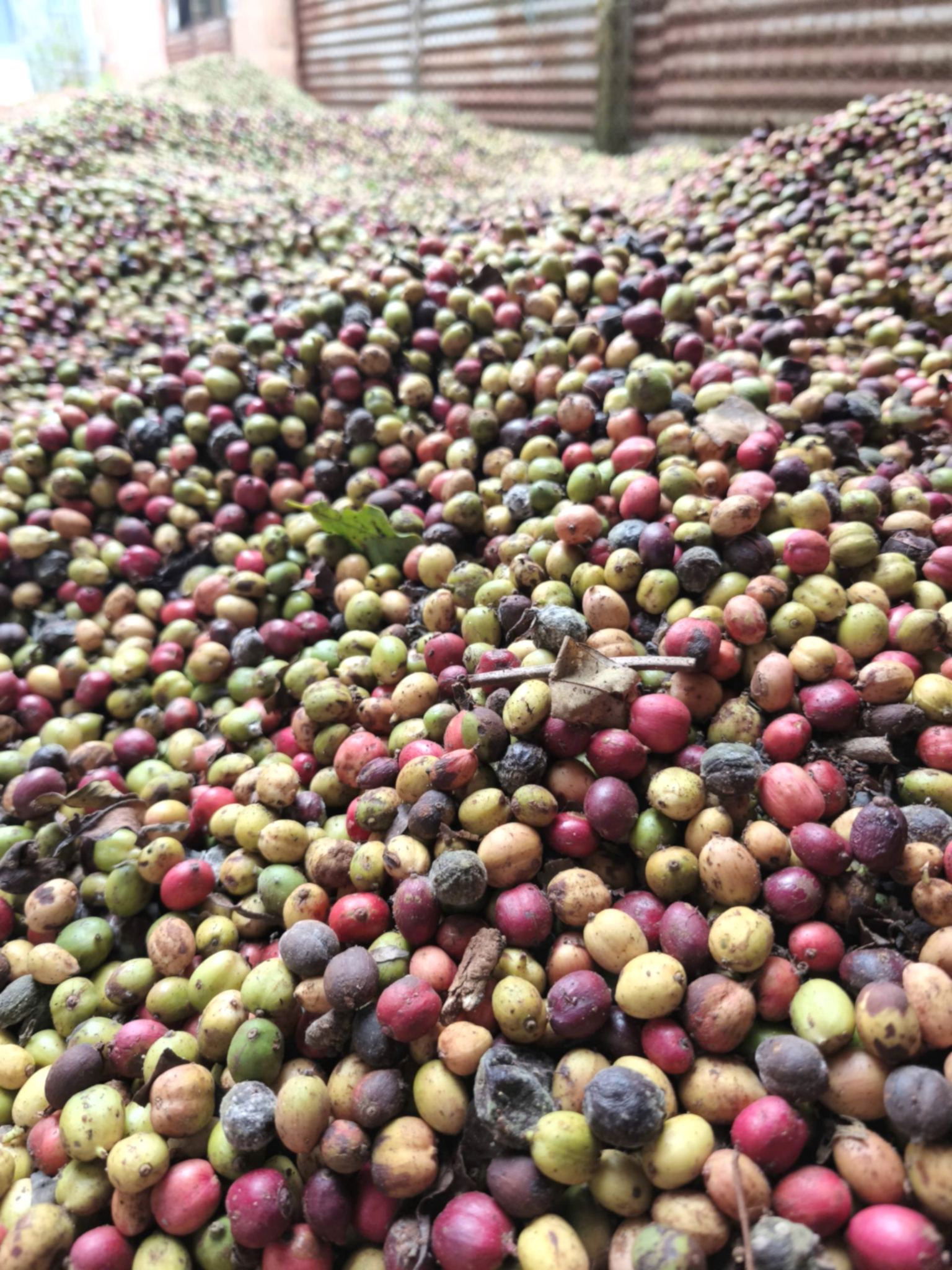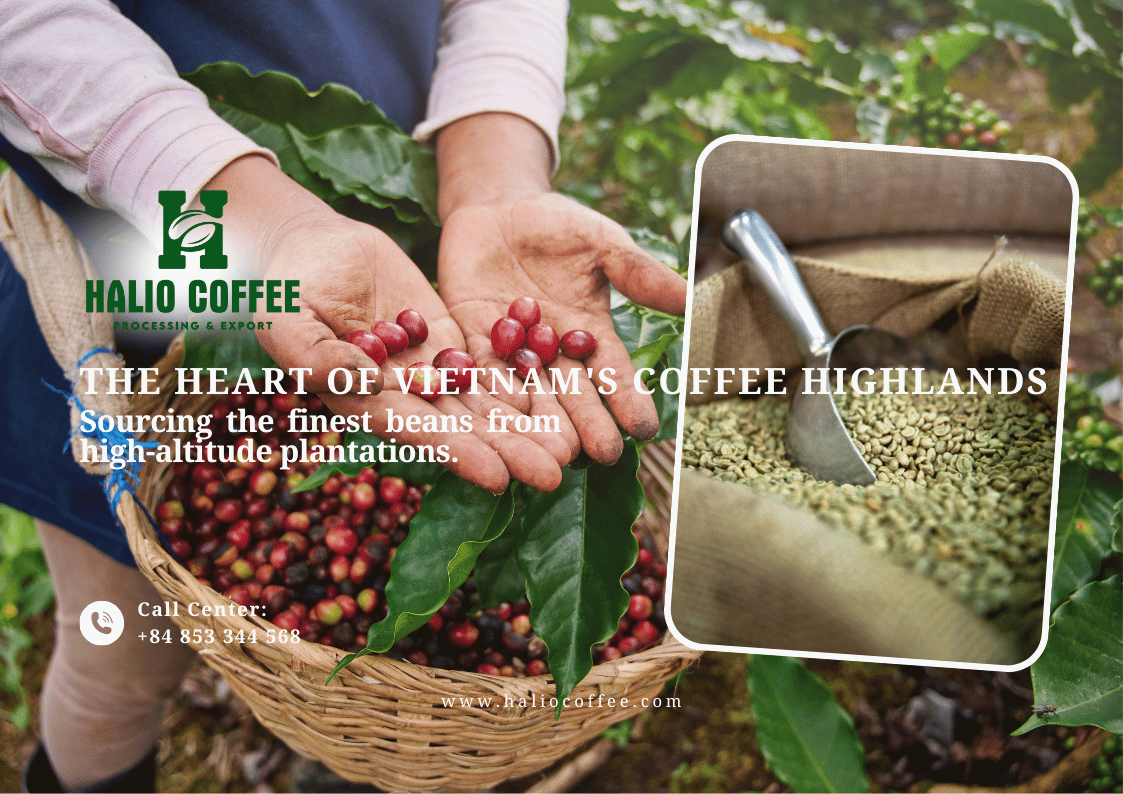Direct Trade Coffee Vietnam: A Transparent and Sustainable Approach to Green Bean Sourcing
Connecting Roasters with Vietnam’s Coffee Farmers – One Relationship at a Time
As global coffee buyers seek greater transparency, traceability, and sustainability, direct trade coffee Vietnam is gaining ground as a transformative sourcing model. This approach bypasses intermediaries and connects roasters directly with farmers—fostering trust, improving quality, and creating more equitable outcomes.
In a country that is the world’s second-largest coffee producer and a key Vietnamese green coffee beans wholesale supplier, the rise of direct trade is reshaping how Arabica and Robusta beans are grown, traded, and appreciated worldwide.
What Is Direct Trade Coffee?
Direct trade is a sourcing model where coffee roasters buy beans directly from farmers, without relying on exporters, importers, or brokers. It emphasizes long-term relationships, fair pricing, quality control, and traceability.
Unlike certification-based models like Fair Trade, direct trade relies on mutual accountability between growers and buyers. In the case of Vietnamese coffee, it’s helping bring global attention to a market long dominated by commodity-driven transactions.
Why Direct Trade Coffee in Vietnam Matters
1. A Robust Coffee Economy with Global Ties
Vietnam’s coffee industry is already tightly integrated with global markets. The country maintains Comprehensive Strategic Partnerships with 12 countries including the U.S., Japan, China, South Korea, and Australia—creating a favorable environment for trade, investment, and agricultural cooperation.
These partnerships encourage:
- Investment in coffee infrastructure and technology
- Research collaboration for sustainable cultivation and processing
- Expanded market access for Vietnamese green and roasted coffee
Direct trade coffee strengthens this framework by giving foreign buyers a hands-on connection with Vietnamese farms.
2. The Strength of Robusta and Rising Arabica Quality
Vietnam is best known for its high-quality Robusta, which accounts for about 90–95% of national output, mostly concentrated in Daklak Province. With the help of direct trade, more smallholders are shifting focus to quality enhancement over volume.
Meanwhile, Arabica is gaining momentum, particularly in Cau Dat (Lam Dong Province), where higher altitudes and cooler climates allow for the cultivation of specialty-grade Arabica that meets global third-wave standards.
3. Benefits of Direct Trade for Coffee Stakeholders
For Farmers
- Higher and more stable income
- Motivation to invest in quality
- Direct feedback from roasters and customers
- Greater recognition for their work and product
For Roasters and Distributors
- Exclusive, traceable lots with distinct flavor profiles
- Consistent quality through repeat relationships
- Brand differentiation built on ethical sourcing
- Greater control over origin, processing, and logistics
For End Consumers
- Access to fresher, higher-quality coffee
- Confidence in ethical sourcing and impact
- More flavorful, unique cups with origin stories behind them
See more:
- Vietnamese Green Coffee Beans Wholesale: Market Insights and Opportunities
- Vietnam Robusta Green Beans: A Core Commodity for Coffee Roasters Worldwide
- Halio Coffee – Your Trusted Fresh Coffee Distributor of Robusta & Arabica Beans
How Direct Trade Works in the Vietnamese Context
1. Building Relationships
Roasters often travel to coffee-producing regions, like Buon Ma Thuot or Cau Dat, to meet farmers, inspect farms, and cup samples. Relationships are built not on contracts alone, but on trust, transparency, and shared goals.
2. Negotiating Fair Prices
Farmers involved in direct trade often earn above-market prices in exchange for quality and consistency. Roasters can set price floors, premiums for processing methods, or bonuses for cup scores.
3. Customizing Processing
Direct relationships allow roasters to request specific processing styles:
- Natural (dry process)
- Honey
- Fully washed
This helps tailor bean characteristics to desired flavor profiles—whether for espresso blends or light roast pour-overs.
Vietnamese Green Coffee Beans Wholesale – The Traditional Model Still Matters
While direct trade is on the rise, the broader Vietnamese green coffee beans wholesale market remains crucial. For larger roasters and manufacturers needing bulk supply, this model provides:
- Efficient logistics and scaling
- Lower upfront costs
- Standardized quality levels
Many Vietnam-based suppliers, like Halio Coffee, offer both models—enabling buyers to choose between direct farm partnerships and wholesale contract volumes, depending on their goals.
Challenges in Implementing Direct Trade
1. Yield Variability
Vietnamese farms may face unpredictable yields due to weather, pests, or shifting labor patterns—affecting consistency.
2. Volatile Pricing
Direct pricing agreements must balance market fluctuations with fairness, which requires transparency and negotiation skills.
3. Cost and Complexity
Establishing direct trade relationships requires:
- Site visits and regular communication
- Language and cultural understanding
- Time and investment in building trust
These hurdles are real—but the long-term benefits far outweigh the short-term costs for companies focused on quality, ethics, and impact.
Examples of Direct Trade in Vietnam
Forward-thinking roasters in Vietnam and abroad are working directly with farmers in Daklak and Lam Dong to:
- Secure traceable micro-lots
- Implement post-harvest innovation
- Co-invest in infrastructure and training
- Promote environmentally sustainable practices
This shift is not just about sourcing—it’s about reshaping the future of coffee, from the soil to the cup.
Conclusion: Direct Trade Coffee Vietnam Is the Future of Ethical Sourcing
As more consumers demand transparency and impact from the products they consume, direct trade coffee Vietnam stands out as a powerful answer. It delivers better beans, supports farming communities, and builds lasting bridges between origin and market.
Whether you’re looking to build direct farm partnerships or explore the Vietnamese green coffee beans wholesale landscape, Halio Coffee is ready to help you navigate Vietnam’s evolving coffee economy with expertise and integrity.
📍 Address: 193/26 Nguyen Van Cu Street, Buon Ma Thuot City, Daklak
📧 Email: Haliocoffee.com@gmail.com
🌍 Halio Coffee – Connecting Farms to Roasters, Vietnam to the World.
- Coffee Prices Today, Nov 6: Both Markets Rise; Strong Arabica Rally Pulls Robusta Higher
- The Comprehensive Guide to Vietnamese Robusta Green Coffee Beans: A New Era of Quality and Opportunity
- The EU-Vietnam Coffee Trade: A Strategic Analysis of the Vietnam Green coffee prices EU import trend
- Rainforest Alliance Certified Coffee Vietnam: Elevating Vietnam’s Green Coffee Market
- Coffee Prices Today, September 27: Both Exchanges Rally Strongly to End the Week







